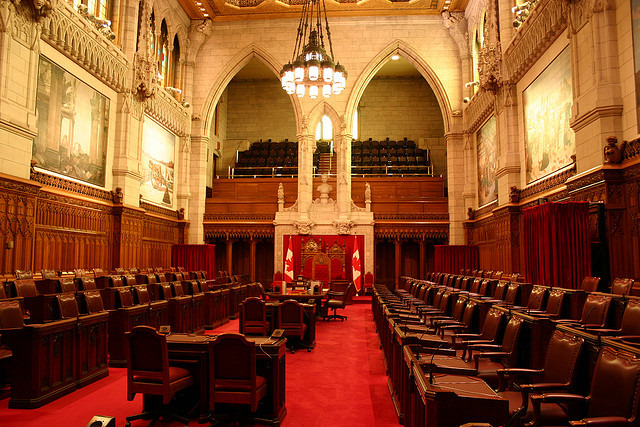Politics, as they say, is the art of the possible. What, one wonders, would happen if the Harper government applied that adage to the seemingly intractable issue of Senate reform?
We already know, courtesy of the Supreme Court of Canada, what is not possible. It is not possible to abolish the Senate without the unanimous consent of the provinces.
The same unanimity requirement would surely pertain to any effort to redistribute Senate seats to reflect demographic reality — by taking from the East and giving to the West. Other reforms, involving the powers of the Senate, the direct election of senators or term limits for its members, would also require significant involvement of the provinces — if not unanimous agreement, at least the consent of seven provinces with 50 per cent of the population (the 7/50 rule).
The failure of the Meech Lake and Charlottetown accords in the Mulroney era illustrate the futility of trying to negotiate provincial agreement on constitutional proposals. It would be no easier today, in an era when the provinces simply do not trust the federal Conservative government to say what it means and to do what it says.
Given this sad reality, the trick for Stephen Harper, if he is serious about Senate change, is to work around the constitutional straitjacket by implementing measures to make the upper house more democratic, more relevant, more useful and more productive — without wasting years arguing with the provincial governments. The measures are all within the realm of possibility, and within the power of the federal government, acting on its own.
First, eliminate party blocs within the Senate by abolishing the Conservative caucus as Justin Trudeau has already abolished the Liberal caucus. Freed of partisan shackles, senators would be able to debate legislation without party rhetoric and to make laws better before sending them back to the House of Commons. Isn’t that what the chamber of sober second thought is supposed to do?
Second, flush the patronage out of the Senate system by changing the method of appointment. Direct election (as for members of the Commons), would require a constitutional amendment, but Harper doesn’t have to go that far.
He could do two things without sacrificing his constitutional prerogative to name senators. First, he could encourage provinces to hold “consultative” elections of senators, as Alberta already does. But Harper would have to pledge to appoint whomever the electorate chose, even if the person were not a Tory. Alternatively, the Prime Minister could invite the premiers to choose the senators for their provinces.
For example, Ontario has 24 of the 105 Senate seats. Four Ontario seats are currently vacant. Harper could invite Kathleen Wynne to present four names and he would appoint them, no questions asked. She might choose four Liberals, or she might not. That wouldn’t matter. Once partisanship is eliminated from upper house, the party stripe of newcomers will be less important than their experience and other qualifications.
Informal groups of senators, feeling the pressure of public opinion, have been meeting secretly in recent weeks to discuss ways of fixing the upper house. (Why the secrecy, I have no idea.) One of their ideas, long overdue, is that their speaker be elected by the members (as the Commons speaker is), instead of being appointed by the prime minister. Another sensible idea is to abolish the daily question period. Now that the government leader in the Senate is no longer a member of the cabinet (a move Harper made to distance himself from the Senate expenses scandal), the question period is even more useless than it has historically been, because now there is no one to answer for the government.
A better idea, I submit, would be for senators to arrange for the prime minister to attend the Senate once a week to take questions for a half-hour or so.
None of these changes would revolutionize Parliament. But they would make the Senate more relevant without reopening the Constitution.
Cambridge resident Geoffrey Stevens, an author and former Ottawa columnist and managing editor of The Globe and Mail, teaches political science at Wilfrid Laurier University and the University of Guelph. His column appears Mondays in Waterloo Region Record and Guelph Mercury. He welcomes comments at geoffstevens[at]sympatico.ca.
Photo: Mack Male/flickr



